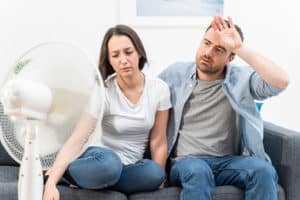
Keeping your rental property in good condition is one of the most important tasks of being a landlord. For most property owners, this task might mean staying on top of electrical and plumbing repairs or scheduling inspections for their appliances. However, a crucial component most landlords overlook is the air their tenants breathe.
Poor air can be detrimental to our health. Several studies link it to the development of allergies and other respiratory complications like asthma. Thus, every property owner that prioritizes their tenants’ health and well-being needs to pay attention to their surroundings. Do you wonder what the potential pollutants are? Or what impact bad air has? This article delves into air quality dangers most landlords don’t know.
Sources of Dangerous Air Quality
1. Dust
Dust is one of the most common air pollutants in any home. Sometimes they also include tiny microscopic pests, which we call dust mites. They’re common in places with poor ventilation and can trigger allergic reactions. If you own a furnished apartment or vacation rental, you may consider hiring a qualified property manager to clean your beddings, curtains, and furniture.
2. Mold
Mold is a microscopic bacteria that thrives in damp places. Besides the stale smell and potential property damage, they can be a nuisance to your respiratory health. The best way to prevent mold is to avoid excess humidity by keeping your home clean and dry. Also, you can educate your tenants on the warning signs so that they can alert you.
3. Volatile Organic Compounds
Volatile organic compounds, also known as VOCs, are chemicals that contaminate the air we breathe and can be dangerous to our health. Unfortunately, they’re common ingredients in many household cleaning products. Despite that, you can still keep the contamination to a minimum by using green products and reducing your exposure. You can also add indoor plants to avoid some of the harmful gases.
4. Smoke and Carbon monoxide
Smoke from open fires and burning cigarettes are other sources of air contaminants. Smoke includes several dangerous chemicals, including carbon monoxide, that can lead to irritation, stroke, and lung cancer. Thus, you should ensure your fire, and carbon monoxide detectors are always working. You can also implement a non-smoking policy in your building and service your ventilation system.
Impact of Bad Indoor Air Quality
1. Allergic Reactions
Dust and dust mites can irritate the upper respiratory tract and trigger allergies. Thus, tenants might complain of nausea, headaches, and difficulty breathing.
2. Irritation
Tenants may also experience irritation from harmful chemicals or particles in the air. They might find their throat, eyes, and nose are itchy. Also, dermatological problems aren’t uncommon. So renters might experience redness or itchy patches on their skin.
3. Respiratory Infection
Depending on the amount and level of exposure, some tenants might also endure respiratory infections. Conditions like pneumonia, bronchitis, and emphysema are common complications of inhaling smoke.
4. Lung Cancer
The lungs are vital for taking and dispersing oxygen to the rest of the body. Thus, when tenants inhale too many toxic chemicals, it could lead to serious health concerns including lung cancer in extreme cases. As a landlord, if your renter can link such a grievous health condition to your negligence, it could be devastating.
HVAC Maintenance Tips
As the central heating and cooling system, your HVAC system is mainly responsible for air circulation throughout the home. Thus, properly maintaining this appliance is essential to preserve your rental’s air quality. Here are some handy tips:
1. Clean the Air Filter
One of the best HVAC maintenance tips is to keep your air filters clean. Over time dust tends to clog it, making it harder to recycle clean air around the house. Thus, it would help if you made it a habit to remove the buildup and change the filter as needed.
2. Inspect the Ducts
Sometimes your air ducts can spring a leak, especially when they’re old. Hence, it would help if you made it a habit to inspect them regularly and patch up any leaks. A well-insulated duct will keep your home at an optimal temperature and reduce humidity. Also, it’ll save you more money on your electric bill.
3. Schedule Regular Maintenance
Schedule regular maintenance for your HVAC system to ensure it keeps running smoothly. A trained professional can help you detect any problems before they escalate and fix any issues you might be experiencing.
Conclusion
Being a landlord means ensuring your rentals remain habitable at all times. Since air is one of the essential things in life, it’s crucial to ensure your tenants have access to a clean and healthy atmosphere. Most landlords don’t know the dangers of air quality, including VOCs, lead painting, mold, etc. These biological and chemical microbes can lead to severe health consequences, including irritation, infections, and cancers. While staying away from such pollutants is essential, you can also improve air quality by maintaining your HVAC system. Ensure you clean the air filters regularly, inspect the ducts, and schedule regular maintenance. Of course, staying on top of your rental care can be pretty challenging. Thus, you might need some help. An experienced property management company can offer convenient solutions to promote healthy air in your units and keep your business growing.
